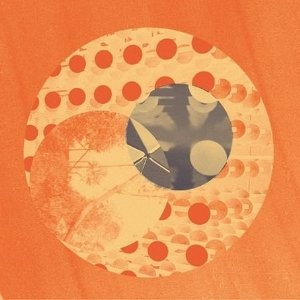Last year, Seeland promised us Tomorrow Today; now, they intend to tell us How To Live. Grand claims, certainly. But promises like this aren’t really for keeping; they’re dreams, inspirations that invite us to construct our own imaginary worlds around their premises. Sketches, if you like, for an impossible, utopian architecture, along the lines of the Archigram school of avant-garde design; the fact that the buildings described will never be built is beside the point.
With their past history as members of Broadcast and Plone, Tim Felton and Billy Bainbridge have been creating soundtracks to dancing about architecture for the past decade or so. Seeland’s roots in Birmingham’s virtual Radiophonic Workshop remain apparent, particularly on the speedy motorik beat of opening track ‘Black Dot, White Spider,’ a classic Neu! rip in the vein of much of their debut album. But when the vocals come in they combine with the electronic pulse-beat to give the song an early-80s, post-punk pop feel, that’s much more indicative of this sophomore release’s overall sound. Tim Felton’s world-weary croon is reminiscent of Edwyn Collins, and How To Live finds Seeland moving towards more succinct, melodic pop songs, yet with such lightness of touch that they remain more suggestions and hints than finished pieces.
For instance, the twinkling ‘Awake in a Dream’ has the same feeling of Martin Denny style exotica sent hurtling out into deep space as does much of the post-Animal Collective American psychedelia around at the moment, but there’s something distinctly English about Seeland’s take on this sound, the expansiveness traded for a certain bedsit claustrophobia, as though the space program were still stranded on Holloway Road, with Joe Meek struggling to light the blue touchpaper. Similarly, the steam-powered psychedelic loveliness of the title track suggests Kraftwerk with the cold, Teutonic alienation replaced by a warm British cosiness, fuzzy and amateur, all dressed in matching cardigans and sipping weak tea in a garden shed. Stand-out track ‘Armour’ has a circular, minor-key melody that suggests an ancient folk song or sea shanty, the vocal harmonies haunting and evocative even as the actual lyrics remain for the most part frustratingly indecipherable; techno pop powered by spinning jenny and water wheel.
The nursery rhyme transparency of the tunes may wear thin in places, and under-stated charm isn’t always preferable to drama and dynamics; one longs for grit and traction on a song like ‘Circles’. But ‘Recall’ gloriously, erm, recalls the Casio-crafted reflections on confusion and alienation that featured on Julian Cope’s first post-Teardrop Explodes releases, themselves channelling Syd Barrett’s psychedelic whimsy for a generation of man-children raised on Mary, Mungo and Midge rather than Wind in the Willows. ‘Afterthoughts’ is a similarly frothy confection of glockenspiel-flecked harmony pop, vintage synths swirling around a ghostly, Super Furry Animals-like summer melody, arriving just as the autumn leaves start to fall. ‘Local Park’ is a jaunty, quirky ode to a spot of municipal green, burbling space noises conjuring up the theme to some forgotten kids’ TV cartoon of the early 70s, unearthed on You Tube. The links to Ghost Box acts like The Advisory Circle are certainly relevant, but songs like the sleep-smudged ‘Cardinal,’ gazing through the condensation of the morning’s window in immaculately striped pyjamas, are just as reminiscent of Saint Etienne, albeit a Saint Etienne without the fairy dust presence of Sarah Cracknell to make their kitchen sink electro-dub a commercially viable proposition.
After just 34 minutes, as the mechanical lullaby of ‘Been So Long’ brings the album to a close, you feel as though you’ve woken from a dream, shaking your head and trying to remember the details as they slip hurriedly away from you, disappearing once more into the plughole of your subconsciousness. All you’re left with is a fond memory, blurred at the edges. In the best possible way, Seeland have designed the ultimate easy listening muzak for the factories of the future; whistle while you work, but no nagging aftertaste guaranteed.


